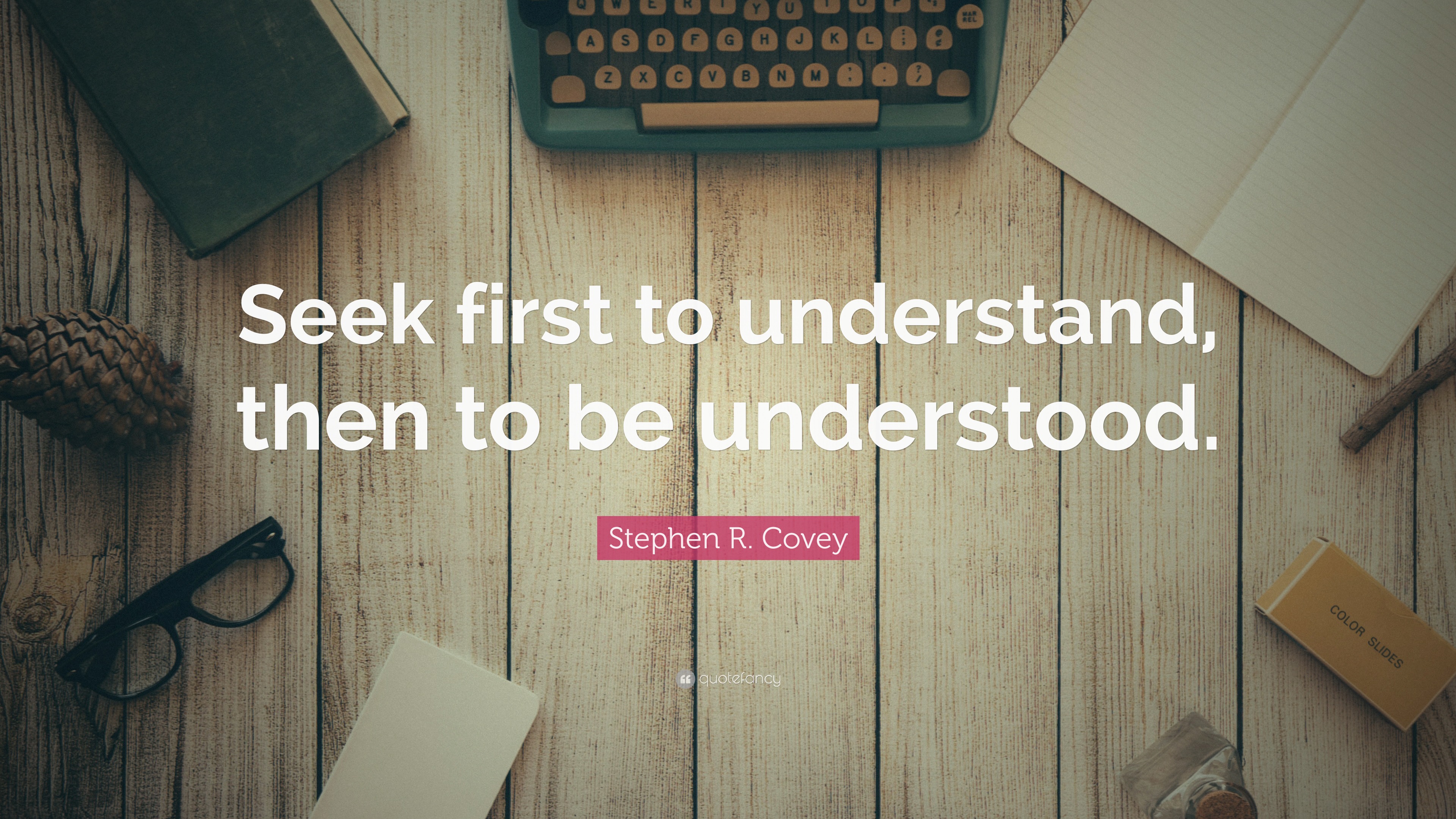
Is the final stage of empathic listening. You rephrase the content and reflect the feeling.

Thoughts, feelings, motives and interpretations you are dealing with the Instead of projecting your own autobiography, assuming We listen for feeling, for meaning and for behaviour.Įmpathic listening is powerful because it gives you theĮxact data to work on. In this, we not only listen with our ears butĪlso our eyes and heart. Is represented by our sounds, and 60% by our body language. Only 10% of our communication is represented by the words we say, another 30% You see the world from their point of view, youĪccording to this book, communication experts estimate that Covey What is empathic listening?Įmpathic (from empathy) listening gets you inside another The 7 Habits of Highly Effective People by Stephen R. Now the question arises is, how can we then understand others? Youĭo not understand people, you are listening and preparing yourself to speak. So this is the problem with autobiographical responses. Do you feel that they understood your problems? I They can provide good facilities to you, in short, they are givingĪutobiographical responses. How do they respond mostly? They usually talkĪbout their own struggles and how they have reached in this position so that

Talking to your parents about your career problems or school problems (I know, Some of you might say, what is wrong in that? Maybe our ownĮxperience can help others in their problem.

Listen with the intent to understand, they listen with the intent to reply, When we are in conversation with others, most people do not These are calledĪutobiographical responses. Tried to help you with the solution which worked for him. (This example is from the book ‘The 7 Habitsĭid you see the problem in this conversation? The doctor Maybe you are not trying hard.ĭoctor: It can’t be, you are not focusing. You: Oh, this is terrible, I can’t even see properly.ĭoctor: How come? These spectacles have helped me a lot when You his own spectacles which he was using) You: I don’t know my eyes are paining since last few days.ĭoctor: Oh! I get it, try using these spectacles (he gives Imagine yourself in the conversation given below.
SEEK FIRST TO UNDERSTAND HOW TO
Covey, ‘seek first to understand, then to be understood.’ This habit is all about how to make your point clear to others, and for that, you have to understand their point of view first. How will you do that? How can you understand other’s point of view and make them understand yours? The answer is within the book, ‘The 7 Habits of Highly Effective People.’ The 5 th habit of the book written by the author Stephen R. But to think of win/win solutions, one has to understand other’s point of view.

In the last post, we learnt about win/win solutions.


 0 kommentar(er)
0 kommentar(er)
